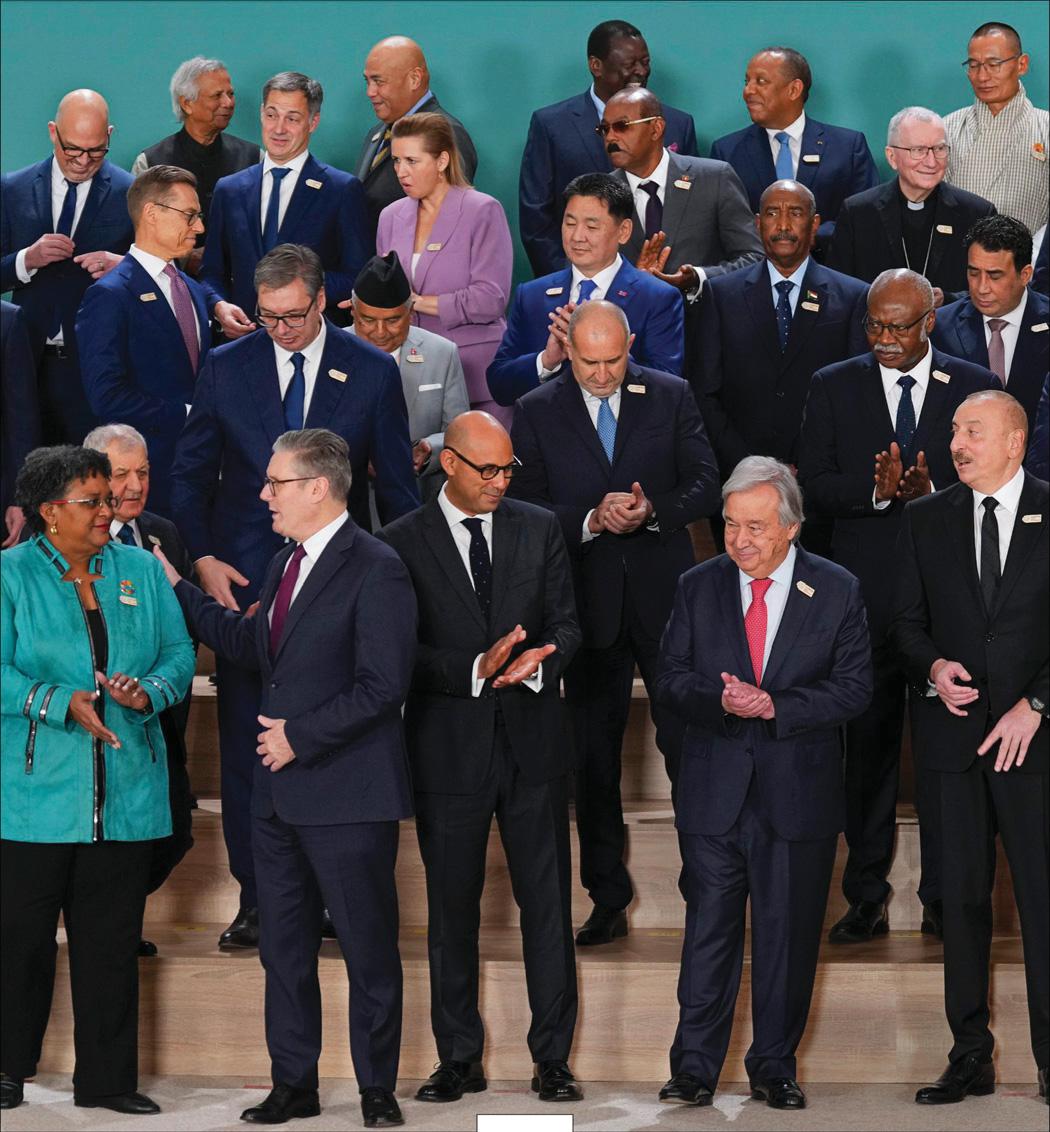But nothing made COP29 more surreal than its timing. With the summit's opening coming days after the U.S. election, Presidentelect Donald Trump served as context for every conversation. The U.S. has for decades played a pivotal role in shaping the talks, brokering key agreements and, most recently, helping to show that the global economy is decarbonizing. From the conference outset, John Podesta, President Joe Biden's climate envoy, offered a blunt assessment. "It's clear that the next Administration will try to take a U-turn," he said. "I'm keenly aware of the disappointment that the United States has at times caused."
In a way, this climate moment is very dangerous. The talks were contentious, with the topic of how to finance the climate transition dividing negotiators. In a moment when we can feel the effects of climate-linked extreme weather, a stagnation in multilateral efforts clearly doesn't help. But there are also reasons for reassurance in Baku. Decarbonization has moved from a theoretical question, delineated in bold but toothless commitments, to a phenomenon occurring in the world's economy-from the small enterprises adapting to sustainability rules to multibilliondollar investments from the world's biggest firms. Indeed, the questions emerging from Baku are less about whether the international climate push will go on but about how.
ONE OF THE FIRST THINGS that struck me upon arriving in Baku was how much the vehicles on the street have changed since I was last there seven years ago. At the time, white Soviet-era Ladas seemed to dominate the roads. This time around, the old-school cars were largely absent. Instead, I noticed the prevalence of Chinese electric vehicles. Baku's EVs offered a small reminder that the energy transition is already changing the world-and not just in major economies. In 2016, when Trump was first elected, delegates at that year's U.N. climate conference wondered if the Paris Agreement-and the decarbonization push it was meant to catalyze-could survive. That's not a question in 2024.
To some degree, the confid...


